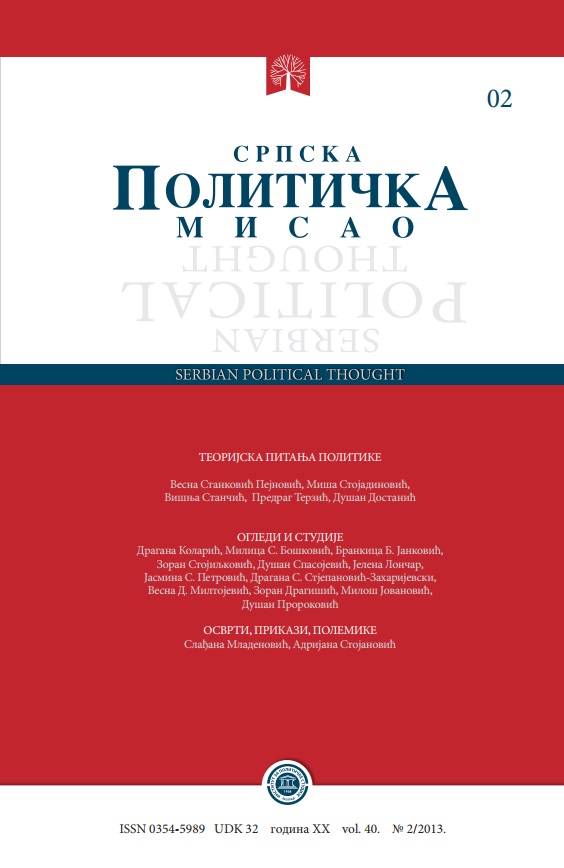Друштвене околности насиља – могућност примене концепта “Помирљиве криминологије”
Social Conditions of Violence – Possibility for Using „Peacemaking” Criminology Concept
Author(s): Milica Bošković, Brankica B. JankovićSubject(s): Education, Human Rights and Humanitarian Law, Politics and society, Criminology, Health and medicine and law, Victimology, Transformation Period (1990 - 2010), Present Times (2010 - today)
Published by: Институт за политичке студије
Keywords: violence; security; society; concept; peacemaking criminology; strategy;
Summary/Abstract: Dissatisfaction with individual’s own living and/or working conditions causing for persons to act irrational, risky, even desperate, for the purpose of making their living standard better. By this kind of acting, some people become victims of crime, while others become criminals. At both cases, state and society security face serious challenges. Human security, as modern concept, for its focus has individual and all aspects important for his life quality. Wozniak, Hagan, Quinney and other representatives of ‘’peacemaking’’ criminology, consider that ‘’classic’’ criminology treat poverty and other unfavorable social circumstances as one of variable at multivariate analysis of crime issues. Representatives of ‘’critical’’ criminology, which ‘’peacemaking’’ criminology is the part, are dedicated to the construction theory which they consider as source of better conceptual tools and instruments for understanding of actual conditions and things that may happen, concurrently focusing on demands for positive changes at society and social justice. The objective of this article is the analysis of possibility for implementing ‘’peacemaking’’ criminology references for purpose of security policy’s review and making stronger following basis of any society: economy, education, health and social protection. The implementation of mentioned criminology concept, should help improving the quality of life, as continuous measure for crime preventing. At this article we analyzed and explained official data provided by Serbia’s institutions, which show number of executed criminal acts (Ministry of interior’s data) as well as macroecomic data (Ministry of finance and economy). All data are collected and presented for period year 2009- 2011. As suggestions for directions through which institutional frameworks and measures against deterrent social factors can be improved, relying to ‘’peacemaking’’ criminology references, we recommended following: a) Anti- discrimination behavior and human rights have to be unequivocally, coordinately and continuously promoted by authorities’ representatives as well as political, educational and cultural elite at the State; b) Individuals, marginalized and vulnerable groups as subjects and objects of security policy, have to be involved into process of creating social and economic system policies, which should be understandable, available and meaningful for them; c) Rights at area of living, working, education, health and social protection and personal security have to be defined and regulated by laws and it have to be done in the way which will represent and respect all (protected) values of persons, society and state, those rights should be the result of all states’, society’s, institutions’ and social groups’ relevant presenters, which changing of those right make harder or even impossible as consequence of the political changes at the country; d) Resources of educational, health and social protection systems should make stronger for the aim of more immediate and adequate working with individuals and social groups as well as promptly recognizing and preventing risks and anomies that could lead to criminal behavior, system for supporting victims of violence and system for supporting former convicts’ resettlement should also be made stronger.
Journal: Српска политичка мисао
- Issue Year: 2013
- Issue No: 2
- Page Range: 119-133
- Page Count: 15
- Language: Serbian

